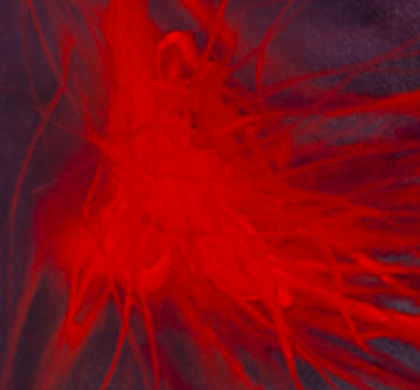
Note 24
It is humbling, and at the same time, a matter of tremendous pride to think that we are on our 24th issue of Out of Print and entering our sixth year of publication.
This issue features an excerpt of the first translation into English of a work of fiction by the literary giant, U R Ananthamurthy after he passed away in 2014. The extract from Bara, meaning drought, translated with elegance by Chandan Gowda is set in a landscape of social and educational disparity layered against the underlying potential of religious tension. It shows some of the irreconcilable conflicts in aspiration, expectation and reality between the idealism of Satisha, the District Commissioner, and his personal life, and the lives and realities of the inhabitants of the drought-ridden area where he functions.
Another story that deals with disparity and cruel realities is Parvati Sharma’s Not a Folktale, Featuring a Dog. A story of migration of the rural poor to the city, here the essential conflict is presented to the reader through setting and loss and the basic act of having to survive. Very few submissions we receive that address the emotional scape of poverty manage to veer so completely from the overly poignant without compromising sentiment as this one does.
Sukhdeo, in Rajendra Kumar Mishra’s A Moment of Happiness and Death lives in acute fear of dogs. Forced to venture out at night to help a neighbour find a doctor, Sukhdeo is struck by the difference between the dogs who wander the Sain Baba Bhakts’ Housing Colony where he lives, and the pampered overfed animals at the posh colony that houses the doctor. Sukhdeo wavers wildly between fear of an animal attack, anger and envy at the injustice of his daily existence, and acute admiration at the possibility that there might, after all, be good.
Satyajit Chakraborty’s seemingly straightforward An Expensive Name addresses the illogical and embedded and often absolute response that an uncompromisingly siloed society engenders. It is the story of a nameless foundling who is brought up in the temple and whom the village accepts and tolerates with great kindness.
The thread of imbalance that runs through the stories in this edition may be read both literally and otherwise in Swing by Harsh Snehanshu. Told from the point of view of a young boy witnessing his mother confront his father and threaten to hang herself, the story weaves between his observations of the ongoing episode and his friendship with a neighbourhood playmate.
Equilibriums are shaken by love. In Noon’s Entry, excerpted from Tanuj Solanki’s Neon Noon, a young man visits the flesh pits of Pattaya. The piece is unambiguous: he is a relative novice at the game, he assesses the prostitutes for their wares, he reviews what he knows about the process of engaging them, and suddenly he is touched by one of the women. In an interview that frames and contextualises the piece, editor, Ram Sadasiv asks Tanuj Solanki ‘how we are supposed to feel about the (im)possibility of love’. Hasanthika Sirisena’s The Other One is all about the possibility of love. In this story also, the inner workings of the male protagonist’s mind as regards men’s responses to, and their viewing of women is revealed. Cricket serves as both the pretext for the narrative, and as the space from which the protagonist can escape from and deal with the trauma of his past in Sri Lanka as his attraction for a woman spin bowler plays out.
I deviate from the usual format of the editorial to thank those who played a seminal role in helping to create, set up and run Out of Print. The first people I talked to with just the seed of the idea and whose response boosted my conviction to create it are James Brunner, Mira Brunner and Samhita Arni. They, and other critical early readers, Ajit Chandrasekhar, Jai Brunner, Ila Pinglay, Mary E. Brunner allowed me to believe we could build up a voice as a literary magazine. We owe the simplicity of the layout and the emphasis on a calm reading space that brings focus to each story to a few people: Jayadeva H, Chicku Jayadeva and their team from Resource – their counsel and advice and inherent confidence in the project gave me the strength to set up Out of Print; Yamuna Mukherjee from Kiri Design, Bangalore whose layout and design, and whose quiet advice in the course of five years of quarterly design contributions helped steer the course of the look and feel of the magazine. As we prepare to refine and update the site, we will keep pivotal aspects of the original design in mind. The current editors, Ram Sadasiv and Leela Levitt have led from where Samhita and Mira helped set the tone of the magazine. Their input, their diversity of approach to editing, and an essential coherence we have as a team takes every issue to another level. As the range of submissions at Out of Print grows increasingly sophisticated, and voices grow stronger, I must acknowledge the wonderful writers who contribute to the magazine, the artists who so generously share their work, and the readers who support short fiction from the Indian subcontinent.
.
The art on the cover of Out of Print 24 is by Anish Kapoor.
